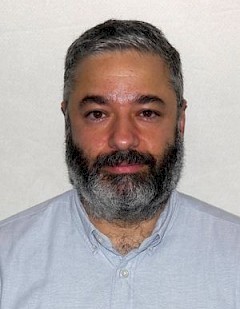Humanities and Languages

Profile
Professor Guillaume Wadia is a historian of modern France and its empire with a focus on North Africa and the Middle East. He obtained his PhD from Harvard University in 2018 and was a postdoctoral fellow at the Mershon Center for International Security Studies at the Ohio State University during 2019-2020. His book project, “A Constellation of Outposts: French Security Services and the Administration of the French Protectorate of Morocco, 1912-1937,” examines the French colonial intelligence state. He argues that the French Protectorate of Morocco was not governed on the basis of indirect rule as existing scholarship assumes, but became the sophisticated project of a group of rogue intelligence officers who wrested administrative and military control away from French and Moroccan authorities. His research has been supported by the centers for European Studies and Middle Eastern Studies at Harvard, the Social Science Research Council, and Sciences Po.
Research
Professor Wadia’s book project “A Constellation of Outposts: French Security Services and the Administration of the French Protectorate of Morocco, 1912-1937,” traces the making of the French colonial intelligence state in Morocco and the role of French colonial intelligence officers in secretly directing colonial governance. He argues that the French Protectorate of Morocco was not governed on the basis of indirect rule as existing scholarship assumes but became the sophisticated project of a group of rogue intelligence officers who wrested administrative and military control away from French and Moroccan elites. On the ground, intelligence officers mixed political patronage, old regime forms of terror, and modern administrative methods to break apart political and ethnically homogenous tribes on the periphery into new administrative units legible by the intelligence state. The polyvalence of these officers as spies and soldiers, of course, but also bureaucrats, magistrates, and agronomists, among many other competencies, ensured that their power extended into political and commercial centers too. Still, French, Moroccan, and British archives, as well as those of the League of Nations, reveal the tensions occasioned by intelligence officers who overreached when managing the political fallout of religious faux pas, droughts, food insecurity, economic crises, and the everyday concerns of Moroccans whose main preoccupation was survival. The legitimacy of the French intelligence state and of the French Protectorate of Morocco was renegotiated everyday as Moroccan nationalists, religious leaders, bandits, laborers, and peasants leveraged the weaknesses of intelligence officers to acquire a role for themselves in the intelligence state and patronage networks to feed their families.
Publications
- “The Violence of the Example: The French Civilizing Mission in French and Algerian Memories, 1918-Present” in Dorothy Noyes and Tobias Wille, eds., The Global Politics of Example (Bristol: Bristol University Press, forthcoming)
Teachings
- HST101 Ahmedabad as Gateway to the World
- HST210 What is History?
- FDP104 Foundation Programme, Water Studio
